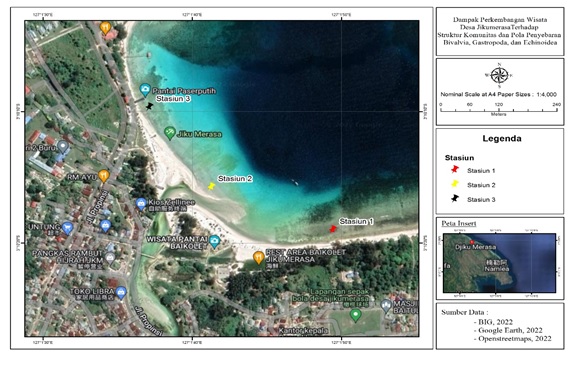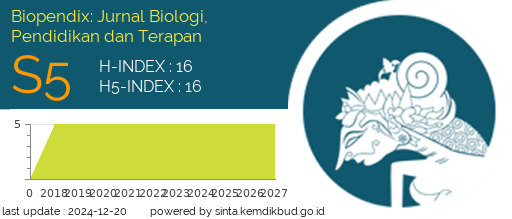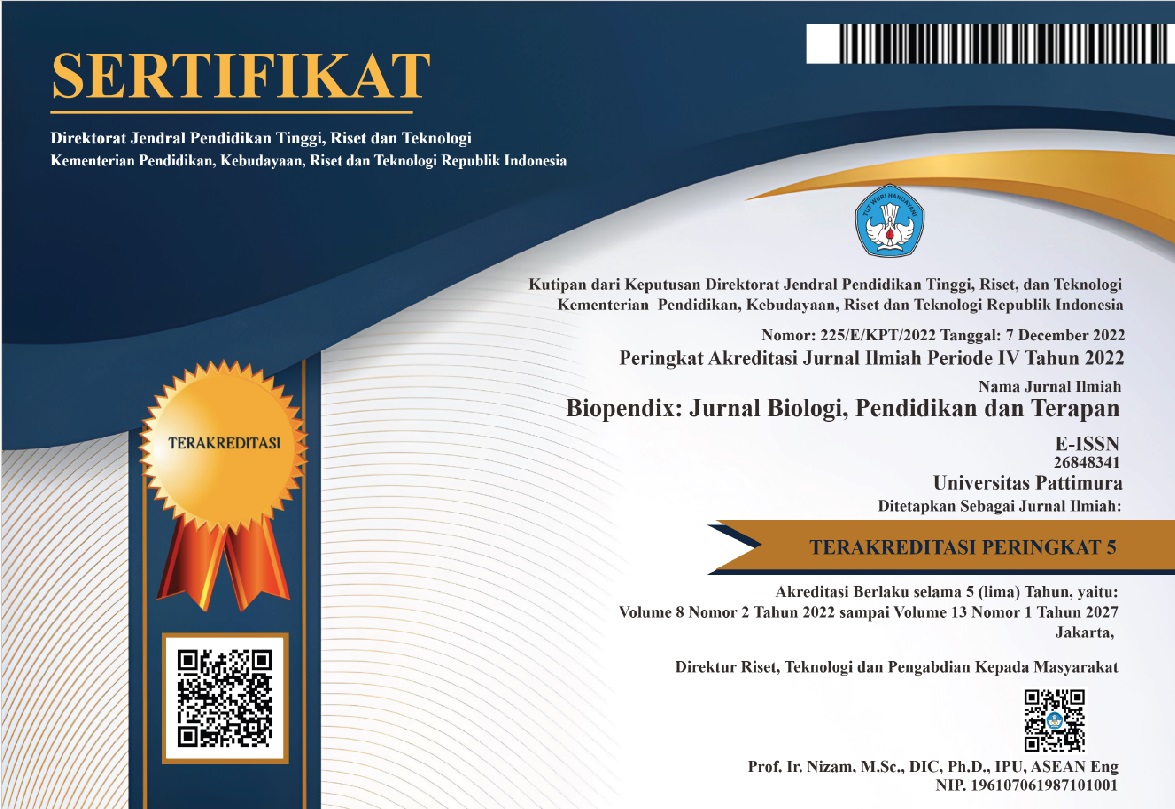IMPACT OF JIKUMERASA VILLAGE TOURISM DEVELOPMENT ON COMMUNITY STRUCTURE AND DISTRIBUTION PATTERNS BIVALVIA, GASTROPODE AND ECHINOIDEA
Abstract
Background: Jikumerasa village has the main object of marine and beach tourism in Buru Regency. This activity has the potential to have a negative impact on community structure and distribution patterns of Bivalves, Gastropods and Echinoidea.
Methods: The study was carried out in August 2022 - September 2022. Sampling used a transect measuring 1 x 1 m (1 m2). Physical and chemical parameters of the waters were measured temperature, pH and salinity.
Results: There were 16 types of gastropods, 9 types of Bivalves and 3 types of Echinoidea found at the study site. Low species density and diversity. High uniformity and no dominant type. A total of 17 species had random distribution and 7 species clustered. Water temperature 29.30C - 29.60C, pH 6.3 - 6.6 and Salinity 250/00 - 300/00.
Conclusion: Beach tourism in Jikumerasa Village has an impact on community structure and distribution patterns of Bivalves, Gastropods and Echinoidea. This can be seen from the few species found, low density and diversity, high uniformity, mostly random distribution patterns of species, and conditions of pH and salinity of the waters below the quality standard.
Downloads

Authors who publish with this Journal agree to the following terms:
- Author retain copyright and grant the journal right of first publication with the work simultaneously licensed under a creative commons attribution license that allow others to share the work within an acknowledgement of the work’s authorship and initial publication of this journal.
- Authors are able to enter into separate, additional contractual arrangement for the non-exclusive distribution of the journal’s published version of the work (e.g. acknowledgement of its initial publication in this journal).
- Authors are permitted and encouraged to post their work online (e.g. in institutional repositories or on their websites) prior to and during the submission process, as it can lead to productive exchanges, as well as earlier and greater citation of published works




 2
2






